
The chicken coop has been quiet and amicable until you notice the squawking, aggressive behavior of a hen that is broody. She wants to lay eggs, hatch eggs and raise chicks.
Should you stop a broody hen, or can you let your chicken stay in the nest to hatch an egg? The answer depends on your goal. Read on to learn why.
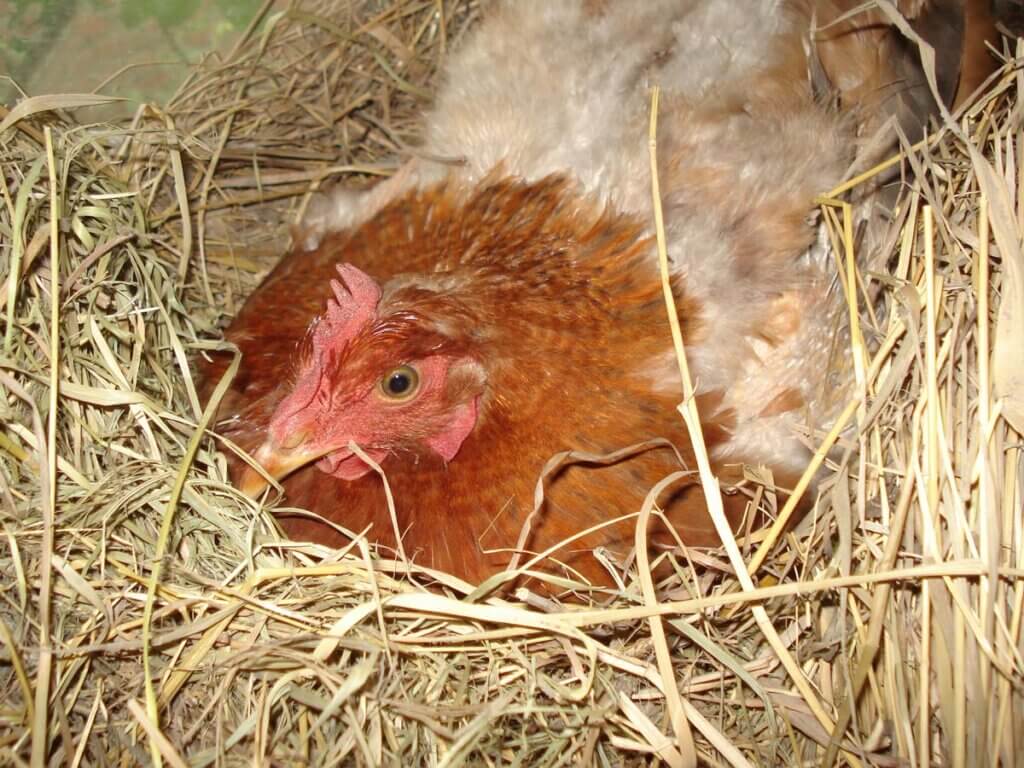
We enjoy raising egg-laying chickens to feed our family year-round. To make this project affordable and sustainable, we learned how to ferment chicken feed, what to feed chickens without chicken feed, how to identify common poultry diseases, and use medicinal herbs to treat our farm animals.
In return for our care, our chickens help restore the land to increase our soil’s health so that we can grow more food for our family. Of course, they also provide an abundance of eggs.
When we have more than we need to make scrambled eggs in cast iron, pickled eggs, homemade egg noodles, holiday eggnog, or a flexible frittata, we preserve our abundance by freeze-drying eggs or using the old-fashioned water glassing method.
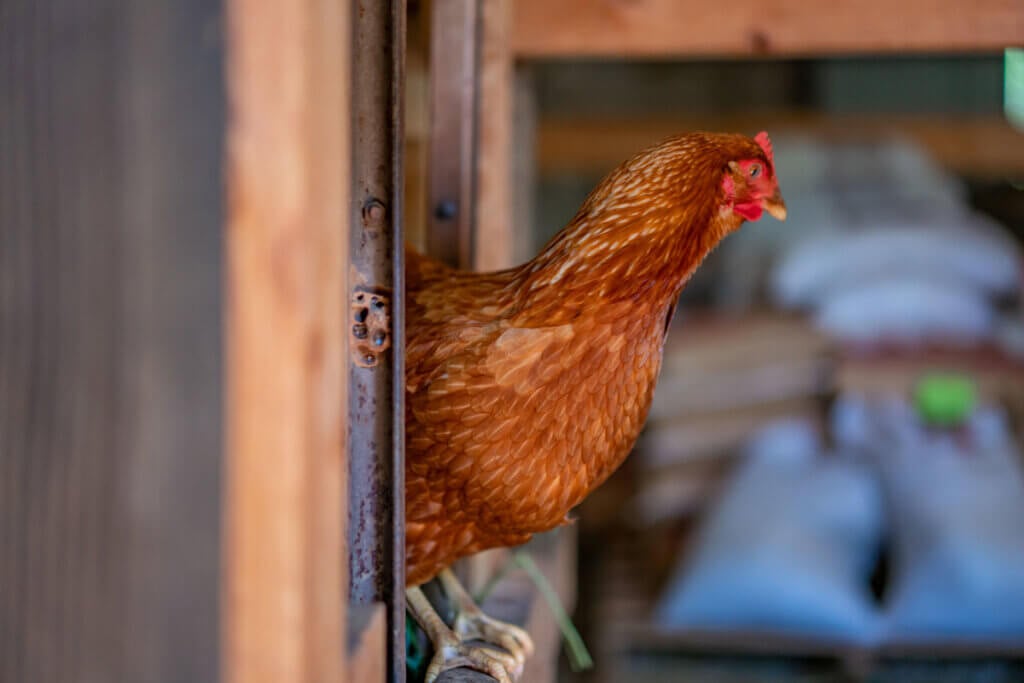
Should I Let My Hen Be Broody
A broody hen can disrupt this process and create havoc in the coop. She will stop laying eggs until her chicks have hatched, which may not be the direction we want her to go.
If we need a hen to increase our flock, then we want to encourage these brooding instincts in her. However, if you use an incubator or don’t intend to hatch chicks, a broody hen must be tamed.
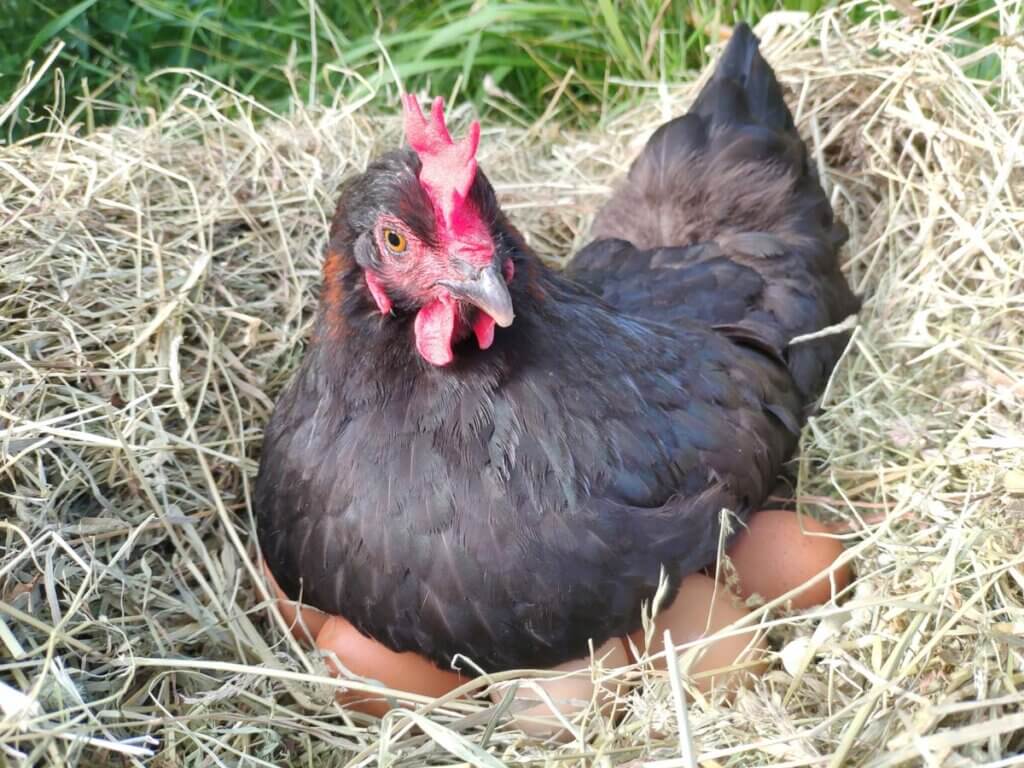
What Makes a Hen Go Broody?
A broody hen instinctually wants to have chicks; her hormones in a season of life, breed type, and daylight hours can bring about this change.
- Hormones – The broody hen is typically at least a year old and has already had a season of laying eggs.
- Breed – Some breeds, such as Sussex, Leghorns, and our favorite, Novogen Brown chickens, tend to be less broody. Buff Orpingtons, Brahmas, Austrolorps, Slikies, or Cochins tend to be more broody. A good general rule of thumb is that the heritage breeds will be more broody as the hybrid breeds have had this behavior selectively bred out of them.
- Daylight – As spring days grow longer and warmer, ending the long cold winter when the hen’s egg production slows, spring fever can produce a broody hen with attitude. She will collect her eggs and, at times, other hens’ eggs, sitting on them day and night, trying to incubate and hatch a little family of chicks.
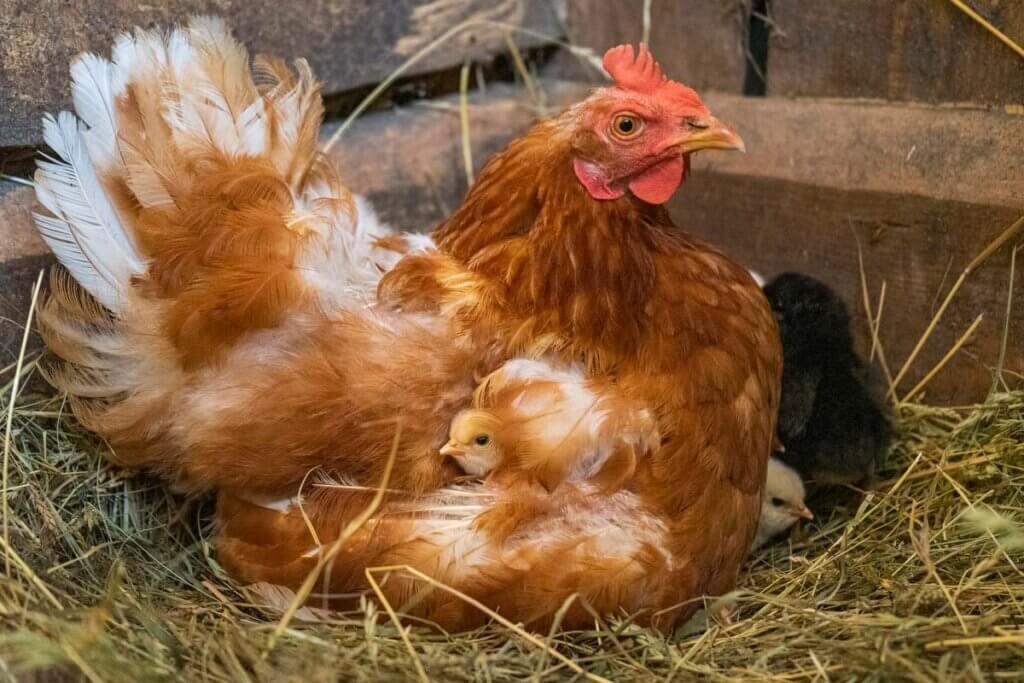
How Long Will a Hen Stay Broody?
The hen will stay broody for around 21 days to complete her nesting cycle. That is how long it takes to hatch a clutch of fertilized eggs.
Signs of a Broody Hen
The signs of a “broody” hen are easily identified when you know what to look for.
- Nesting – The broody hen will sit on the nest for endless hours day and night, only leaving to eat, drink and defecate once a day. Using the deep liter method for backyard chickens is crucial for our chicken’s health; going outside multiple times a day and leaving the nest makes this method possible.
- Roosting – The broody hen will not leave the nest at night to roost with the other hens. She will stay in her undisturbed, dark area, trying to keep her eggs separate and warm.
- Egg Hoarding – The broody hen will hoard her eggs and the other hen’s eggs, nesting them with her own. This can create “hen havoc” in the coop.
- Feather Loss – Broody hens will pluck out their chest feathers so their skin directly touches the eggs to provide more body heat.
- Aggression – The broody hen will be highly protective, squawking and pecking at you as you try to remove the eggs or her from the nest. Aggression that isn’t usually a problem becomes one quickly!
- Stop Egg Production – The broody hen will stop producing eggs until she hatches the clutch, a twenty-one-day process that lowers overall egg production.
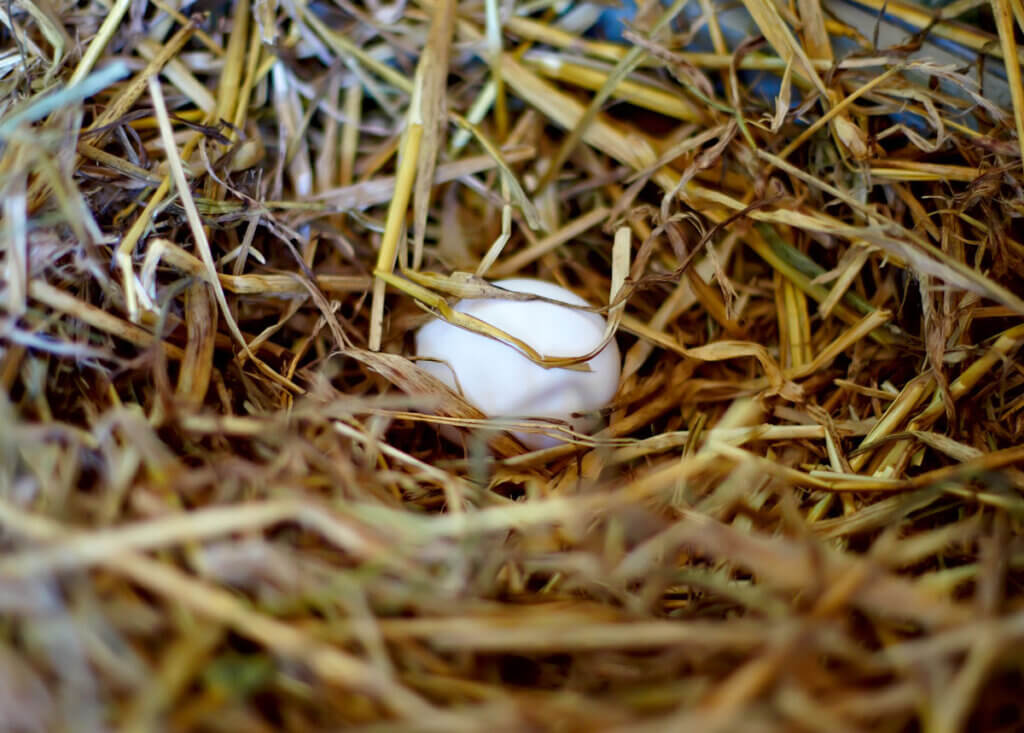
Ways to Encourage Brooding Behavior
If you have chosen a chicken breed that is more likely to go broody and you want to encourage this behavior, there are a few things you can do:
- Pseudo Eggs – Place “eggs” such as golf balls, Easter, ceramic, or wooden eggs in the nesting area to lure the hen to come to sit on them.
- Feed and Water – Make feed and fresh water easily accessible to encourage the hen to stay put.
- Seclusion – Give your hen a quiet and private area away from the rest of the flock. You can even add curtains to the nesting area to help darken the area making the hen feel more calm and secure.
- Nesting Material – Place a generous amount of nesting material to make a soft area for her fragile eggs to lay.
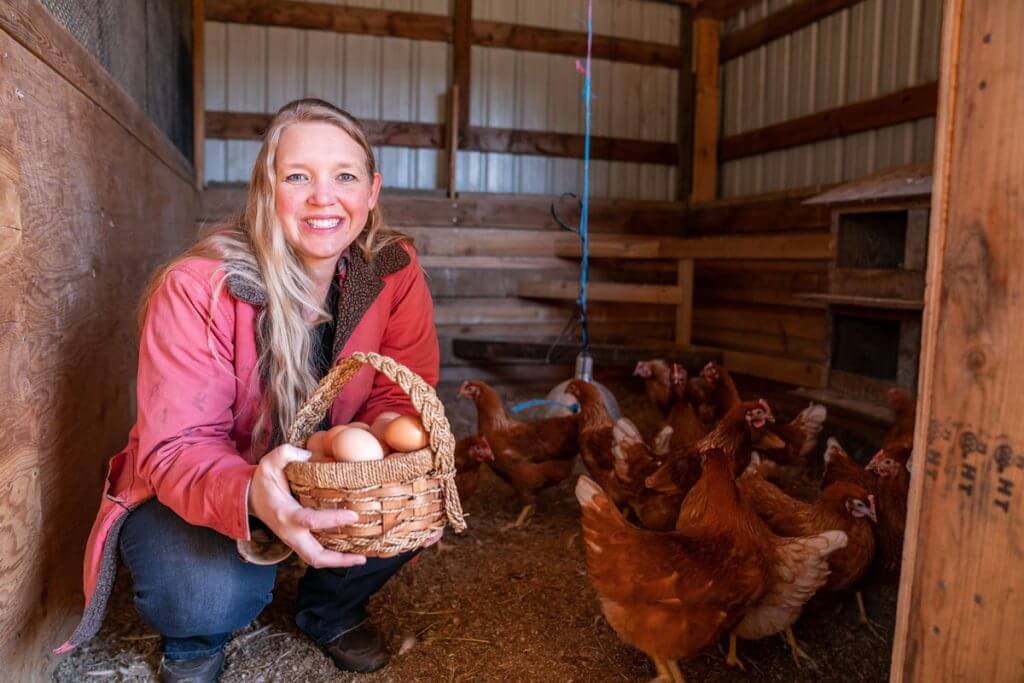
How to Redirect a Broody Hen
If you prefer your hen not to go broody, here are some ways to redirect your hen’s behaviors.
- Remove the Eggs – Managing your hen house daily and removing the eggs promptly can prevent a hen from becoming broody. Homesteading Hack: Always use best practices for handling farm fresh eggs safely.
- Remove Nesting Box – Take away the broody hen’s ability to nest by removing the nesting box first thing in the morning after removing the eggs. Homesteading Hack: If she doesn’t cooperate, gloves are recommended!
- Isolate – If the broodiness continues, remove the broody hen from the coop. This removes her from the nest and the ability to sit on eggs. Place the hen in a separate cage with a wire bottom for several days or longer. Make sure the hen has plenty of food and fresh water.
- Move Nesting Area – When the hen returns to the coop, move her nest to a different location to help with the reset.
- Chill the Nesting Area – Chilling down the broody hen’s nest with ice packs can effectively stop her from sitting all day and night brooding.
Homesteading Hack: Occasionally, a hen will stay broody; perhaps her hormones have not stabilized. She will become aggressive with her chicks, and you must break her broodiness immediately.
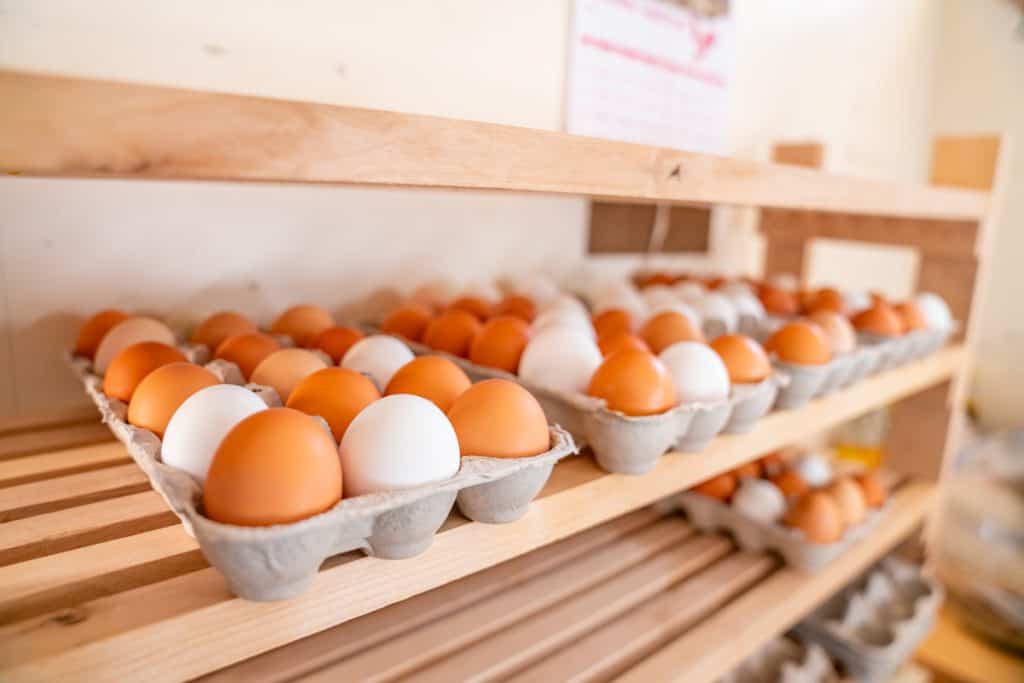
Is It Safe to Eat Eggs From a Broody Hen
Knowing how long the hen has been sitting on her eggs can be tricky if you haven’t collected them daily. The older the egg, the less likely you’ll want to eat it. A foul smell when the egg is cracked indicates that the egg is past freshness.
The float test is another proven way to test for freshness; if the egg sinks, it’s good; if it floats, don’t eat it. Ultimately the best method is managing your coop by collecting eggs daily.
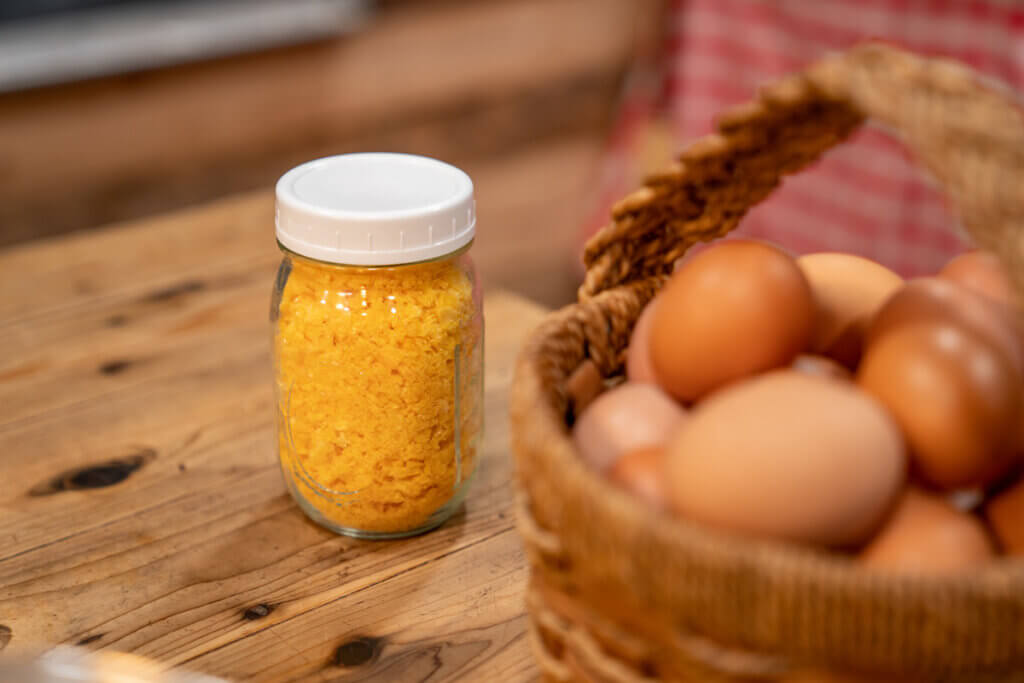
The Abundant Pantry
As you can see, learning how to manage a broody hen is essential to maintaining a healthy flock of egg-laying chickens. Whether increasing your flock or concentrating your current flock on egg production, the end goal is to maintain a steady flow of eggs coming into your pantry.
Learning how to preserve eggs helps keep you in good supply during low egg production or cycles when you allow your hen to go broody.
The Abundant Pantry Egg Preservation Course includes 11 classes teaching you everything you need to know about handling, storing, and multiple ways of preserving eggs. Get started today, and receive a bonus Homesteading Family Favorite Egg Recipe eBook and The Complete Digital Preserving Eggs eBook!
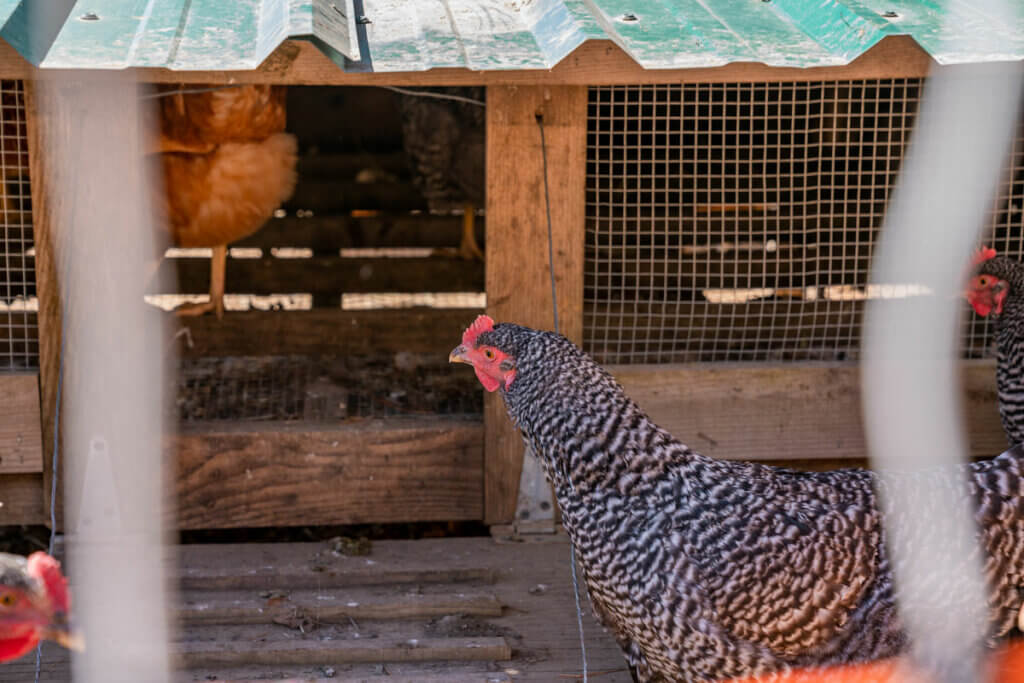
More Articles You May Enjoy
- Raising Backyard Egg Laying Chickens
- Best Chicken Coop – Chicken Tractor Basics & What to Consider When Buying One
- How to Ferment Chicken Feed for Cheaper, Healthier Chickens
- Why Do Chickens Stop Laying Eggs
- Deep Litter Method for Backyard Chickens (With or Without a Coop)
- Using Chickens to Restore the Land
- Everything You Need to Know About Raising Meat Chickens
- Poultry Diseases Common to the Homestead


















